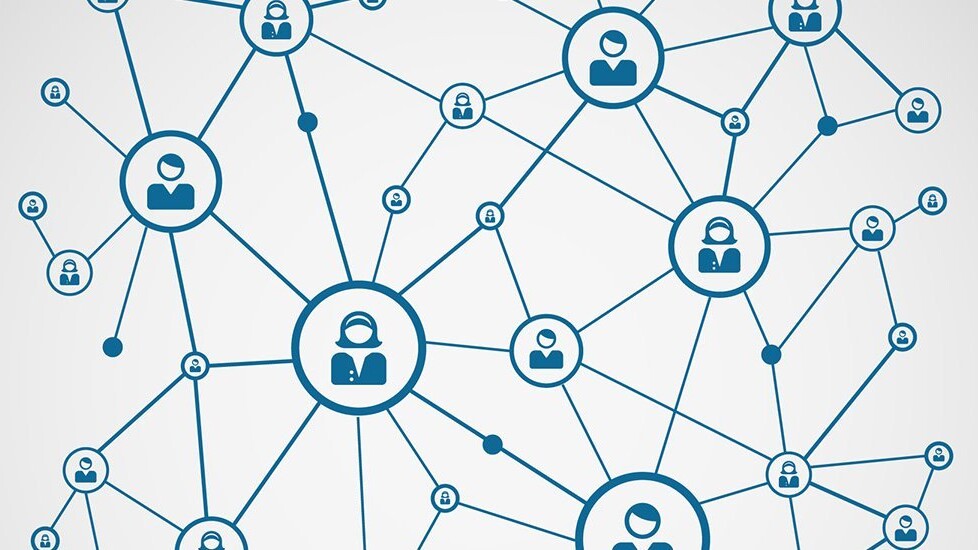
Fact: You’re going to spend a total of five years of your life on social media.
Are you going to waste it lost along with all the mindless drivel of memes and fake news? Or will you make sure that you have a voice, and that you will matter?
If you’re like any of the 2.5 billion people out there who use social media, then you probably start your day checking your smartphone or other device for notifications. Yes, we’re all guilty of this, one time or another. We spend more time on social media than actual socializing. Interestingly, Gen Xers spend more time on social media than Millennials, although teens reportedly spend around nine hours of each day connecting with their friends online.
I think many of us fail to realize what kind of impact social apps already have on our lives. Case in point: Don’t you ever wonder why these social networks are able to uncannily and accurately direct advertisements based on your likes and preferences — even if you try to be discreet with your online habits?
That’s because social networks are keeping tabs on what you do online.
Anything you say or do on social networks, the places you go, the photos you share and take — these are all digital breadcrumbs that make up your online profile. And let’s not even get started with how social networks are potentially listening in on what we say.
Accept it, we’re not merely social network users, but we’re becoming a product of the social networks that we use. All the major social networks like Facebook, Instagram, Twitter, and others are free apps — but we are paying for it with data and with identities.
In fact, social networks are increasingly asking us to share more and more parts of our lives. Even Messenger services now have a function that lets us share “moments” of our daily lives.
But how about those of us who merely want to connect, communicate, and keep in touch, all without being tracked?
Decentralizing ownership of the social network
Here’s where I think blockchain technology can make a big difference.
By combining a decentralized consensus mechanism with a private and secure platform for exchanging messages and information, we might be able to finally get connected without the risk of exposing too much to those who own the platforms.
This is just what Obsidian aims to do, with its Obsidian Messenger, a blockchain-based platform for messaging, data sharing, which also supports cryptocurrency as a means of sending money.
According to Peter McClory, CEO of Obsidian, the platform was designed from ground-up with the user’s privacy in mind. “The initial concept for Obsidian was to overcome the weakness that other end-to-end-encryption messenger apps still have today,” he tells me. “The issue many of these apps (WhatsApp, Signal, Wire, Threema, etc.) have is that none of the well-known secure messengers protect communication metadata effectively enough, that is, who is communicating with whom. This lets observers and/or the company that runs the messenger on their servers create a network of people who exchange messages. That’s especially a problem when user accounts are linked to email addresses or phone numbers.”
Thus, instead of having centralized servers owned by the social networking company, Obsidian will run off of nodes run by users with stake, who are distributed across the globe.
No more digital breadcrumbs
An inherent advantage of a distributed system based on the blockchain is that it eliminates the presence of meta-data on centralized servers, which can be used by third parties for tracking, surveillance, or data gathering.
For example, with traditional messaging systems like Facebook Messenger and Apple’s iMessage, the messages themselves are encrypted from end-to-end. This means no one can read what I am sending to a friend through the platform. However, the meta-data remains in plain sight. This is what other parties can keep track of. They may not know what I am saying, but they can find out that my friend and I had a message exchange and eventually piece things together from there.
Again, for most users, this might not be bothersome, but there are certain scenarios in which total privacy and secrecy are desirable. For example, those behind government censors can benefit from a platform like Obsidian.
In addition, while traditional social networks will require us to login using a valid email or mobile number, a blockchain-based network can provide added anonymity when desired. “We completely remove the requirement for user accounts, so that addresses will never contain any information that can be linked to phone numbers, email or other accounts,” says McClory.
Users get a fair share
Perhaps one complaint against social networks is how intrusive they have become in targeting their advertising. I don’t mean this by way of popups and banners. Rather, they are intrusive because, as I earlier mentioned, the social networks know the kind of things we like and then tailor fit whatever appears on our feed — which are all based on details they have gathered from our lifestyle and online activities.
Now, this might not exactly be a bad thing, since targeted ads can help show you things that are relevant and potentially interesting. However, the discomfort here is how social networks are selling your data to advertisers and third parties, all based on the information they have collected (and which may personally identifiable with you at some point).
Did you know that platforms like Facebook made $9.32 billion in advertising revenue last year? Unfortunately, we get zero share of that. Why do they get all the benefits, again?
The business model is broken — or at least it is biased towards those who own the big platforms.
Last year, Steemit, a decentralized social media network community is disrupting the old way of doing things by rewarding users for good content, all while penalizing fake news and bad submissions. All of this is decided by the users, who have a voice through their upvotes.
Users can post stories or news and if their submission goes viral, they receive compensation. To date, Steemit amassed more than 100,000 active users and released more than $4 Million to it’s users.
Another blockchain-based social network, onG.social wants to change this by empowering us users to get rewarded from our content and engagement on social networks. Described as a blockchain-based social hub, onG.social offers cryptocurrency rewards to users and publishers, enabling the community to decide which posts have merit and which are “voted down” for being fake news.
“Major social platforms like YouTube, Facebook, and Twitter were supposed to be free and open solutions platforms for the people, but they have become increasingly corrupted and regularly censor those voices that have the most important things to say,” says Alex Lasarev, CMO at onG.social. In contrast, onG.social’s blockchain-based approach “was built to resist top-down censorship and control,” he adds. “It is a platform that encourages its users to speak and spread truth, and down-vote propaganda and lies — allowing the community to decide what content thrives or dies.”
Integrated payments and crowdfunding
Ecommerce is currently the darling of venture capitalists and startups, especially in emerging markets, and the combination of social media and ecommerce — or social commerce — can help accelerate transactions and value. While we have seen payment integration into social platforms like Facebook and Messenger before, it’s probably obvious that a blockchain-based social network has an advantage of native cryptocurrency support.
Here, networks like onG.social and Obsidian have their inherent advantages, with their own coin — onG coin (ONG) and Obsidian (ODN), respectively.
The purpose of these is two-fold actually. First, the active nodes that will actually run the network need some incentive to operate (remember, there are no centralized servers), and this is in the form of cryptocurrency. Second, users will be able to send coins to each other as a matter of payment mechanism.
“Running a network doesn’t come for free, somebody has to pay to run the hosts,” says McClory. “That’s why we needed a cryptocurrency, that can pay rewards to node hosts so that they have a financial incentive to run decentralized messaging nodes. Which in turn takes the decentralization a step further, as this removes any financial incentive for the company to run advertising or sell user data (if they had access to that, which they won’t).”
And if that is not enough, blockchain tech can also integrate crowdfunding into social networks. This can help significantly accelerate crowdfunding campaigns like those on Kickstarter or GoFundMe. Since the cryptocurrency mechanism is built right in, then users can more easily contribute to their desired projects or causes.
Conclusion: Is blockchain the future of everything?
The founders of Obsidian, which has currently raised approximately 457 BTC (around $1.89 million) of its target 1,375 BTC ($5.67 million) in its ongoing ICO, believe that the blockchain is the way moving forward, especially for technology companies that wish to leverage on distributed infrastructures. “Blockchains are a remedy to fight corruption and fraud in both commercial and government organization, as they make things transparent and almost impossible to forge,” says Obsidian’s McClory.
Meanwhile, onG.social is currently live, and it will move its social network to the blockchain upon completion of its ICO. The coinsale has so far raised 1,032.9800 ETH (around $320,244), with around three weeks to go.
The new generation of social platforms echo each other in saying that the existing environment for social networking is broken. The power all rests in the hands of the platform owner — we are just data points they can monetize. Blockchain-powered startups can significantly change the environment for social networks, especially if people start shifting toward decentralized networks, which offer better privacy and security, as well as better control over their content.
McClory says the future is bright for blockchain-based startups. “Blockchain technology has already been embraced by a vast range of organizations, and this year the market cap has expanded at a rapid pace,” he says.
“As mainstream awareness and seamless adoption increases, and as more products like Obsidian take advantages of features unique to the blockchain, the market capitalization will move past the trillion dollar mark for certain. The only question is when that happens, rather than if it does.”
Get the TNW newsletter
Get the most important tech news in your inbox each week.








